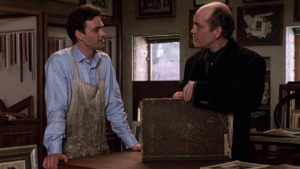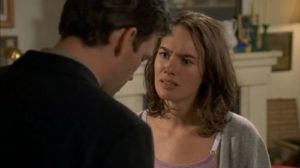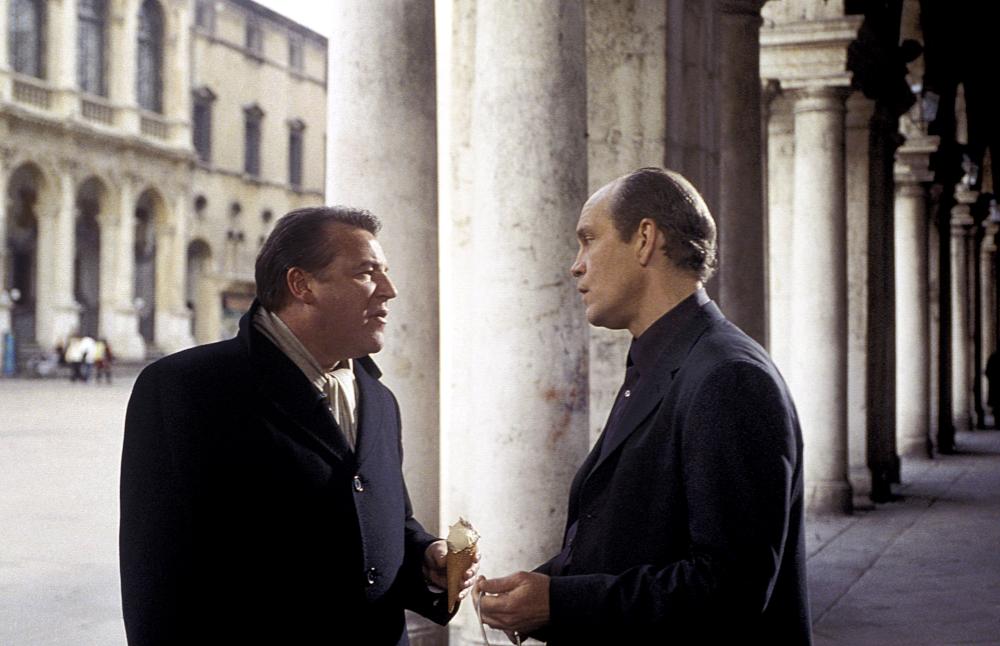John Malkovich has had a wildly successful career in film. His early efforts saw him playing iconic characters such as depraved Vicomte Sébastien de Valmont (“Dangerous Liasons,” 1988) and aloof Lennie Small (“Mice and Men,” 1992). His later efforts have included such blockbusters as “Transformers: Dark of the Moon,” “Being John Malkovich,” and “Con Air.” His roles are as widely varied and eccentric as his talents. Known often for comedic and sinister roles, his resume (almost reaching the impressive number of Steve Buschemi) shows that he can play virtually any role.
One of his more accomplished roles, and one which should please fans of Malkovich’s work, is the 2002 crime drama “Ripley’s Game.”
Based on the novel by Patricia Highsmith, the story has little to do with the first book in her series “The Talented Mr. Ripley,” or its film adaptation starring Matt Damon and Jude Law. “Ripley’s Game” features the same ‘Tom Ripley’ of that story, but one who is billed as older, wiser, and more talented. Slower paced than “Mr. Ripley,” the film is immensely entertaining for those who like gradual, deliberately-paced crime dramas, and virtually anyone who is a fan of Malkovich’s work.
The film opens in the picturesque countryside of the Veneto in Italy, and all the splendor that accompanies the region. Ripley, now in his late 50s, has found a decrepit harpsichord and has asked a pair of shopkeepers to rejuvenate it. Tom Ripley a refined connoisseur of music? It seems a far cry from his early life of impersonation, crime, and murder. However, an early scene which portrays him murdering a man who haggles with him over the price of stolen paintings, and his quip to the shopkeepers serve to solidify his two-fold character. When told it will take weeks to fix the instrument, Ripley replies coldly “You have 13 days.”

Retired from crime, Ripley intends to live out his days with his girlfriend Luisa (Chiara Caselli) and live in peace. However, a visit from an old accomplice, Reeves (Ray Winestone, “The Departed”), who is in need of his help re-awakens the sinister past he thought he left behind. Reeves needs some business competitors killed, and while Ripley won’t attend to it himself, he has the next best thing – his neighbor Jonathan (Dougray Scott, “Everafter”), even if Jonathan’s not willing – yet. Thus the two embark on a mission to gain Jonathan’s participation in their sinister ‘game.’
The relationship between Jonathan and Ripley throughout the movie is possibly its strongest asset. Jonathan, a working-class family man, ultimately goes along with Ripley’s less than scrupulous proposal out of financial need and desperation. Jonathan has leukemia and bills are piling up. He doesn’t loathe Ripley but doesn’t exactly like him, accusing him of ruining the historic property in which he has moved into by ‘restoring the heart and soul right out of it.’ He commits one murder for Reeves, earns $50,000, and thinks his job is complete. However, Reeves, spotting an easy mark, has no intention of letting him go easily. After warning Reeves to leave Jonathan alone, Ripley ends up assisting Jonathan on a second hit, which surprises him. Ripley is not used to caring about other people.
The character development in “Ripley’s Game” between these two men is phenomenal. We learn more about Ripley’s sinister nature. After the hit, when Jonathan asks him “Why me?” Ripley responds coldly, and almost as an afterthought- “Partly because you could…and partly because you insulted me.” The bizarrely introspective way Ripley rationalizes his own behavior drives his character, giving audiences an impression of a deep history of pathological acts the movie doesn’t have time to fully explore. “I lack your conscience and when I was young it used to trouble me,” he says to Jonathan to console him. “It no longer does.”
 Aside from the astute relationship that the film builds between Ripley and Jonathan, the film is almost perversely one-sided as Ripley is really the only one that grows during the film. Sure, Jonathan goes from a carpenter in a small shop to an ambivalent hit man, but Ripley is the one who has the most to lose. For the first time in his life, he is feeling guilt (part at including Jonathan, and part for being drawn back into the game), and acts out of character. He saves Jonathan’s life multiple times, but once, as Jonathan saves his, asks of him bemusedly “Why did you do that?” His feelings betray him as he comes to realize, possibly for the first time in his life, what it means to be human.
Aside from the astute relationship that the film builds between Ripley and Jonathan, the film is almost perversely one-sided as Ripley is really the only one that grows during the film. Sure, Jonathan goes from a carpenter in a small shop to an ambivalent hit man, but Ripley is the one who has the most to lose. For the first time in his life, he is feeling guilt (part at including Jonathan, and part for being drawn back into the game), and acts out of character. He saves Jonathan’s life multiple times, but once, as Jonathan saves his, asks of him bemusedly “Why did you do that?” His feelings betray him as he comes to realize, possibly for the first time in his life, what it means to be human.
While gradually-paced, the action and intrigue of the film is top notch, and will doubtless keep viewers entertained throughout. As Reeves’ plan begins to fall apart, he, Ripley, and Jonathan find they must fight for their lives or become victims themselves. The action sequences are well acted and directed, and the dialogue is right on the mark. Scenes between supporting characters, such as Jonathan and his wife (Lena Headey), serve to advance the plot and add necessary drama to the proceedings.
“Ripley’s Game” pulls you in, not because it is fast-paced and mesmerizing, but because its solid plot brings to light glimpses of human nature in the most unlikely places. The game, started by Ripley as a way to get back at Jonathan, becomes something much greater that he struggles to comprehend. Jonathan becomes a man we can all understand, causing us to question what we may do in dire circumstances. And while Ripley doesn’t really change, he perhaps understands himself a little better by the end of the film. It is a testament to John Malkovich’s acting that we believe this transition and want to stick around for it to unfold. Left in less capable hands, Ripley may have faded into the background of this unsung film. Malkovich brings him to life, gives him an edge, and leaves us with the distinct impression of a truly talented Mr. Ripley.
– by Mark Ziobro


